#trauma therapy san francisco
Explore tagged Tumblr posts
Text
10 Steps to Finding the Right Trauma Therapist in San Francisco and Bay Area
Finding the right trauma therapist in San Francisco and the Bay Area involves careful research and consideration. Here are 10 steps to help you in your search:

Understand your needs: Begin by gaining clarity on your specific trauma-related needs. Consider the type of trauma you've experienced, any specific therapeutic approaches you're interested in, and any other factors that are important to you in a therapist.
Seek referrals: Reach out to trusted friends, family members, or healthcare professionals for recommendations. They may have firsthand experience with trauma therapists in the area or know someone who does.
Utilize online directories: Use online directories specifically designed to help you find therapists in your area. Websites like Psychology Today, GoodTherapy, and TherapyDen allow you to filter results based on location, specialty, and other criteria.
Research therapists' credentials: Once you've identified potential therapists, research their credentials and background. Look for therapists who are licensed, experienced in trauma therapy, and preferably have additional certifications or training in evidence-based trauma treatments.
Read therapist profiles: Carefully read the profiles and biographies of therapists to learn more about their approaches, specialties, and areas of expertise. Look for therapists who specifically mention trauma therapy and describe their experience working with trauma survivors.
Check for compatibility: Assess whether the therapist's approach aligns with your preferences and needs. Consider factors such as gender, cultural sensitivity, and therapeutic orientation. If a therapist offers a free initial consultation, take advantage of it to assess compatibility.
Consider logistics: Take into account logistical factors such as location, availability, and fees. Ensure the therapist's office is easily accessible and their schedule matches yours. If cost is a concern, inquire about sliding scale fees or whether they accept insurance.
Read client reviews: Look for client reviews or testimonials on the therapist's website, online directories, or other platforms. While individual experiences may vary, reading reviews can provide insights into the therapist's effectiveness and client satisfaction.
Contact potential therapists: Reach out to the therapists on your shortlist and schedule an initial phone call or consultation. Use this opportunity to ask questions about their experience, approach, and how they typically work with trauma survivors.
Trust your instincts: Finally, trust your gut feeling when making a decision. Pay attention to how comfortable you feel during the consultation, and whether the therapist seems understanding, empathetic, and supportive. Ultimately, choose a therapist with whom you feel safe and understood.
Remember, finding the right therapist is a personal process, and it may take time and multiple consultations before you find the best fit. Don't hesitate to explore different options until you feel confident in your choice.
#trauma therapist#trauma therapy San Francisco#Family trauma therapist#best trauma specialist#trauma therapist san francisco#trauma therapist near me#trauma therapist in san francisco#trauma therapist bay area#trauma and ptsd treatment san francisco
0 notes
Text
professional help, c2. preview
simon riley x original character.
abstract: this is Jude, this is a little bit of information about me since you care so much, I don't even know you… anyway yes, I really like being mysterious, what you gonna do about it, punch me in the face? I'm not even real, grow the fuck up. see ya.

trigger warnings: violence, sexual assault, mentions of rape, trauma, sexual themes, swearing, use of alcohol and drugs, eating disorders, depression.
song to listen to when reading this: *The Chain*, Fleetwood Mac.
Sometimes, she just fucking hated her life. She supposed it was normal like that, it happened to everyone to absolutely fucking despise their lives, no? She wakes at the same hour everyday, does her makeup. Not too much, just enough so she looked like she had slept the night before. She conceals her identity under eyeliner and blush. She looks like a doll. She likes her makeup, she's quite good at it. She plays with her hairstyles, sometimes a bun, sometimes braids, sometimes loose with a headband, depending on the mood. She walks her dog and cleans his poop.
She always comes in dressed in dark colours, dark red, dark blue or black. She has 10 male patients and 8 female soldiers. Some of them are combat medics, some snipers. Demolition experts. She works till lunch time, eats alone, sometimes skips lunch just to make her body feel something and indulge in disordered eating, then goes outside to smoke and comes back in. After the afternoon sessions, she sometimes has groups together for some group therapy.
She didn't work for the entirety of 2022. She had an accident with one of the patients, classified information. She survived, but man was it hard to live after that day... Spent time with her dog, visited a friend in San Francisco, taught ballet at the local dance school. Price and Laswell felt so guilty they continued to pay her even if she wasn't working. Why she decided to come back she really didn't know. She thinks the truth is she likes helping people, makes her feel good. She liked crazy stories and she had a reputation at the base, she was starting to be respected. She craved that. And it really started to bore her, the routine. Until Arash.
She was used to raising her voice and presenting herself as stoic and cold. She knew perfectly how to be violence. She noticed a familiar face once she opened the door of the briefing room. A familiar face mask. The skull guy, she had seen him before. Was he the guy… She could't get distracted. Her little mission went smoothly. She always knew Price liked her and feared her at the same time, and when it came to his little soldier boys, she really didn't care what they thought about her. The guy from the day of her accident even spoke to her. Poor thing. She was really amused no one told him about the reason why she didn't want to go home alone. He did really good that night, she remembers him well. He didn't try to speak too much, he sounded gentle. A gentle giant. Unfortunately for him, no one was gonna tell him about that day. When she left the room, she went straight home. She doubted someone would ever contact her again about the situation, they would handle it themselves, and probably very badly.
notes: full thing on sunday!! let me know what you think <3
love, mare.
taglist:
@ummmmmwat @ghostlythots @sweetfemmefatal @natxpat @chavarriakeren647 @ravenmoore14 @farther-than-pleiades @internallyscreamings @hwromi @atoxicrat @cuti3maddi3 @deafeningkittenblaze @its-celeste @serene-hills @lexidoll12 @poohkie90 @lunatiquess
@warmedbythebody @katzykat @iristhemuse @azkza @keiraslayz @abbyandermine @jennyjencakes @dest-nai @corset-briefs @nutze-kekse @ilytsukiw @b3anspr0ut
@pondsblog @missyouzoe @fallenkitten @bigauthorrascalturkey @bethtay @angelynn-nicole @starluv @stargirlisworld @giyuuslittleslut @impossiblecupcakelight
@rkrivees-blog @ghosts-hoe @kam1snotverysmart @gauky76 @freyjaaasstuff @spicyspicyliving @scottpilgrimvsmyfists @courtney0-0 @shinchanboi
#cod mw2#cod x reader#ghost cod#simon ghost riley#ghost fanfiction#ghost headcanons#simon ghost x reader#cod fic#call of duty#cod modern warfare#gaz cod#gaz call of duty#141 headcanons#cod 141#tf 141#mw2 141#141 x reader#task force 141#john soap mactavish#john price#captain price#cod ghost#simon ghost x you
22 notes
·
View notes
Text
20th Century Gay & Lesbian Historical Fiction for Young Adults
While your parents (or adults over twenty-five or so) may object to the mid-to-late 20th century being called "historical," there's been a wellspring of YA fiction recently about the experiences of gay & lesbian teens in the last hundred years. Here's just a few books from this niche that have popped out to me:
World War II & the 1950s
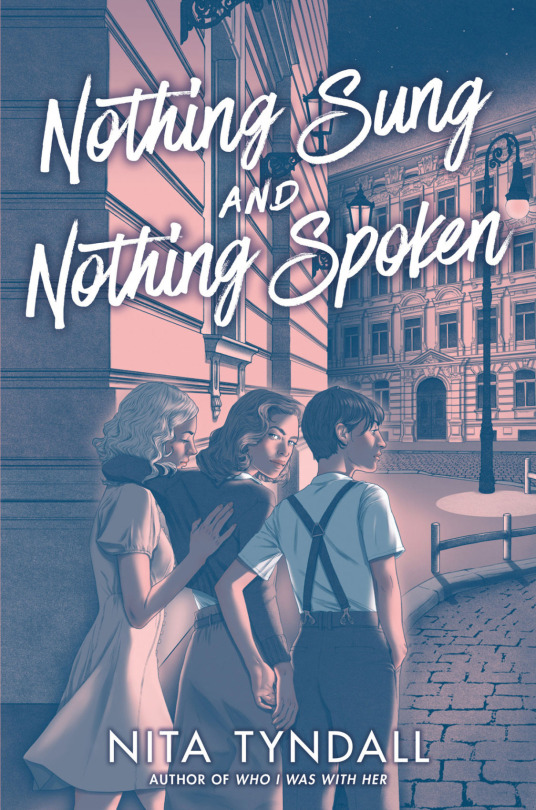
Nothing Sung & Nothing Spoken by Nita Tyndall Find this book near you on WorldCat. Starting in 1938, this book follows Charlie (short for Charlotte), who falls in love with jazz music and other girls in Nazi Germany. Through the war, Charlie's determination to hang onto these illicit, "degenerate" loves under violence and authoritarianism is tested, and relationships change before the war ends...
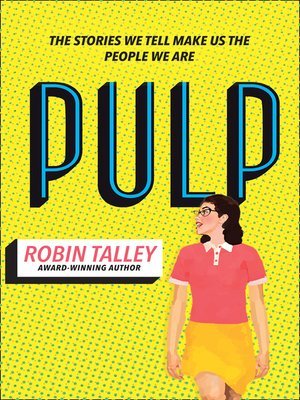
Pulp by Robin Talley Find this book near you on WorldCat. Taking place in both the 1950s and the modern day, main character Abby becomes engrossed in 50s lesbian pulp fiction and becomes determined to find the author of her favorite work who, in her past, deals with similar relationship problems amid the mid-century Lavender Scare.
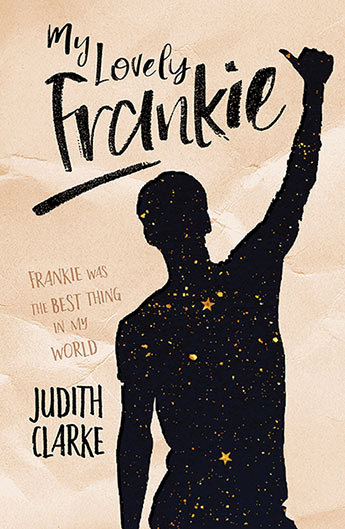
My Lovely Frankie by Judith Clarke Find this book near you on WorldCat. Set in 1950s Australia, Tom feels compelled to join a Catholic seminary, but soon feels himself falling for a fellow student. Looking back on the situation from the modern day, Tom reflects on what love can really mean within Christian religion.
The 1970s
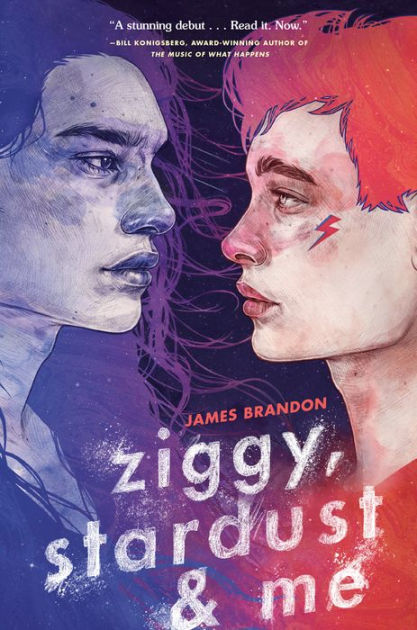
Ziggy, Stardust, & Me by James Brandon Find this book near you on WorldCat. Sixteen-year-old Jonathan is in electroshock conversion therapy just months before “homosexuality” is removed from the DSM. In these volatile times, Jonathan dreams about David Bowie & develops a friendship - maybe more - with a Two-Spirit kid named Web.
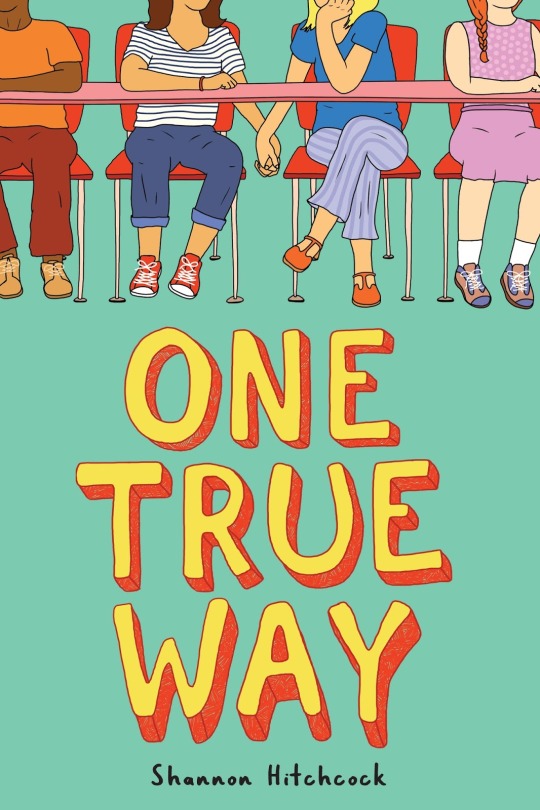
One True Way by Shannon Hitchcock Find this book near you on WorldCat. Aspiring reporter Allie moves to a new town in the late 1970s and develops a friendship and romance with Sam, a fellow middle-schooler. But the town they live in isn't very supportive of the few gay people who live there, leading Allie to try and find support in perhaps unexpected places amid a backdrop of rapid social change.
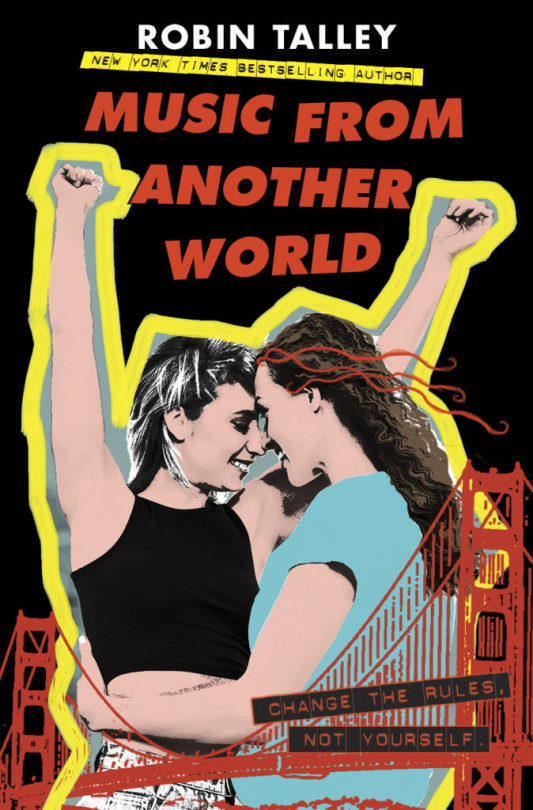
Music From Another World - Robin Talley Find this book near you on WorldCat. Another pick from Robin Talley, this time taking place in the punk scene of 1970s San Francisco. Told largely through letters, two teen girls - both closeted - become pen pals through their schools, and must learn how to rely on each other and their rebellion as the anti-gay backlash in the U.S. grows more and more oppressive.
The 1990s
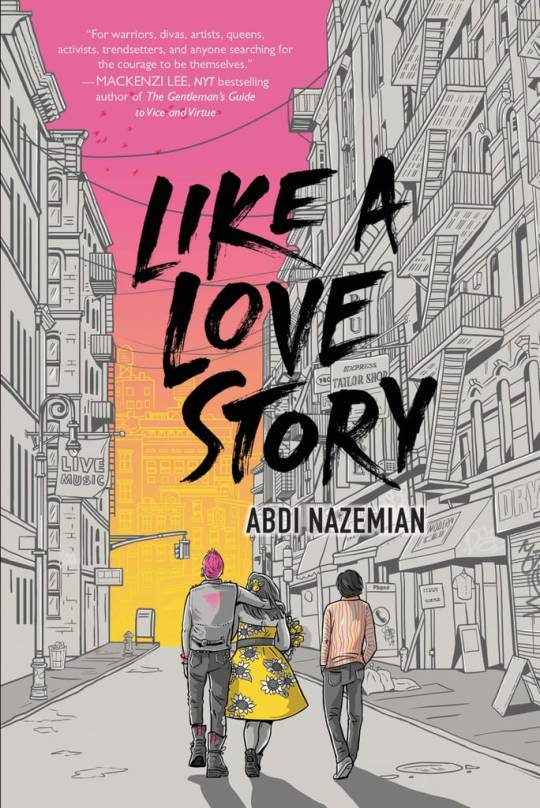
Like a Love Story by Abdi Nazeman Find this book near you on WorldCat. Coming in at the tail end of the 1980s AIDS crisis, Reza is an Iranian immigrant struggling with his fears about being gay and getting sick, while a love triangle develops between a girl crushing on him, Judy - who he only sees as a friend - and an openly gay punk, Art. The trio volunteer for ACT UP, an AIDS advocacy group, as fear, love, and illness makes relationships complicated for all three.
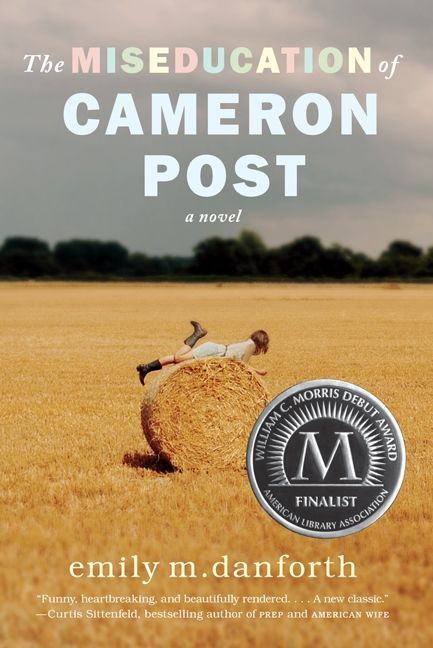
The Miseducation of Cameron Post by Emily M. Danforth Find this book near you on WorldCat. Living with her aunt in Minnesota after her parents' untimely deaths, Cameron has to navigate her love for girls in a strict Christian household - one that, once she's caught, sends her to a conversion therapy camp. There, she must navigate meeting other queer people for the first time, but also come face to face with trauma...

I Will Greet the Sun Again by Khashayar J. Khabushani Find this book near you on WorldCat. K is a teen navigating abuse, the immigrant experience, and blossoming queerness through the early 90s until after the September 11th attacks in 2001. When K and his brothers are taken unexpectedly to Iran by their volatile father, they don't know it's going to be an experience that changes their lives - though it may or may not be for the better.
#literature#young adult literature#book reviews#librarian stuff#my writing#historical fiction#young adult
6 notes
·
View notes
Text
If the language used on the internet is a reliable indicator, we’re more psychologically enlightened than ever. We discuss attachment styles like the weather. We joke about our coping mechanisms. We project, or are projected on to. We shun “toxic” people. We catastrophise and ruminate. We diagnose, or are diagnosed: OCD, depression, anxiety, ADHD, narcissism. We make, break or struggle to “hold” boundaries. We practise self-care. We know how to spot gaslighting. We’re tuned into our emotional labour. We’re triggered. We’re processing our trauma. We’re doing the work.
The language of the therapy room has long permeated popular culture. Common terms like “repression”, “denial”, “slip of the tongue”, “hysteria” and “inner child” all lead back to Freud. But over the last decade or so, with the vast expansion of social media networks, a new, seemingly sophisticated language sits on modern society’s tongue. Some call it therapy-speak. Or psychobabble. But despite its prevalence, the language is divisive.
Last month, online discourse throbbed with disdain when Sarah Brady, the ex-partner of Jonah Hill, shared text messages he’d sent her about his “boundaries” (no “surfing with men”, no friendships with “women who are in unstable places” and no swimsuit selfies). Many argued that his self-satisfied language was a weaponising of therapy-speak; using “expert” terms to try to control her behaviour.
If we’re often online and are plugged into wellness, self-help or relationship worlds on social media, therapy-speak is our first language. Here, algorithms feed us from a bottomless well of content by coaches and other self-proclaimed experts who teach us how to cope with being triggered; how to identify a narcissist; how to “show up” in relationships; how to hold a boundary and so much more. With every scroll, a new tutorial in human psychology. But what are we actually learning?
“By virtue of being human beings, we’re masters at distancing ourselves from difficult aspects of emotional life,” says Dr Jonathan Shedler, a psychologist at the University of California, San Francisco. “One way we distance ourselves is through words. What we’ve got now is this kind of pop-psychology language of clichés, abstract concepts and turns of phrase that are so different from speaking from the heart.”
For Shedler, modern therapy-speak is “not actually a product of reflection and examination”. In psychotherapy, he says, “we always move from the general to the specific. People will say something general or abstract and a good therapist is always asking for examples. If a person says that they felt stressed, we might say, ‘OK, tell me more about that. How did you experience the stress?’ If a patient is using therapy-speak, the goal of the work has to be to move away from this to something more immediate and emotionally alive.”
Platforms such as YouTube, Instagram and TikTok pull in colossal viewing numbers on these abstract concepts. Search “gaslighting” on YouTube and the top result (“10 Examples of What Gaslighting Sounds Like”) has 3.3m views. On TikTok, the #narcissism hashtag has 3.8bn views. Search “triggered” on Instagram and a tidal wave of multimedia content appears. You can scroll for 10 minutes and still be fed lists, memes and vlogs. Even if only a small portion of viewers take the language they’re absorbing online into their offline conversations, we can still imagine how easily it seeps into public consciousness. Particularly among young people, the main demographic for platforms like TikTok.
We might argue that an increased awareness of psychological dynamics, and a growing ease for identifying and discussing mental health issues, are particularly good things for teenagers and young adults. The historical backdrop is that mental health was shrouded in stigma and taboo for so long. If young people can have a freer, more matter-of-fact understanding of mental health, it may lead to less suffering in silo. Maybe even a positive effect on generations to come. But the expansion of certain language worries some professionals who work with young people.
Kate teaches biology in a secondary school in Manchester, where she has worked for 15 years. She has been a form tutor for 10. In her experience, conversations she hears among teenagers – and the way issues brought to her are described – have changed dramatically in the last five years. “I hear words like ‘triggered’, ‘gaslighting’ and ‘narcissist’ so often now,” she says. “Young people are using these words to describe their fellow pupils and other teachers, when they feel hurt or singled out. I had to look up what gaslighting meant.”
She reflects empathically on how difficulties in friendships when you’re at school can “feel like the end of the world”. “You want to validate how they feel,” she says. “Because being a teenager is really hard. But sometimes it seems as if they’re wedded to words they’ve picked up on social media. They’re dismissing each other and, sometimes, struggling to take responsibility for their own behaviour because they have compelling words like ‘triggered’ that make their own feelings the most important thing, above all else.”
Kate wanted to be quoted under a pseudonym. She was worried that her reflections might be seen to be taking a coping strategy away from young people when “the world is stacked against them.” It makes sense.
Climate change weighs heavy on their minds. Media influence and gender norms continue to create a disparity between their lived reality and future aspirations. (Men are still portrayed as independent, emotionally stoic and in roles that signify strength; women as childcarers, home-keepers and care-workers. A young person’s real-life sense of themselves may not fit with the images they absorb, and may cause mental distress or limit a young person’s sense of potential.) The pandemic, social inequality, austerity and online harm have driven a huge rise in NHS mental health referrals – and the system is buckling. Thresholds for getting specialist help are so high that many young people are refused care, sometimes with fatal consequences. It is a curious phenomenon that, while statistics suggest young people’s mental health is declining, social media has provided a compelling language with which to navigate their lives.
But some therapists (including myself, and many I know) believe that the expressive nature of therapy-speak is, actually, not all that expressive. The language barely aligns with what therapy is; a singular relationship between the therapist and their client, with its own intimate context and idiosyncrasies.
Shedler focuses on the word “triggered”. “For some people, it’s very difficult to say, ‘I was angry’ or, ‘I was terrified’. So there’s already a layer of obfuscation about what their internal experience is. Something we try very hard not to do in therapy is locate the upsetting thing externally. If you leave the ‘I was triggered’ there, your internal experience is almost secondary. In meaningful therapy we try to reverse that. All our experiences take on personal meaning. The work of therapy is to explore those layers.”
The psychotherapists I have trained with, and been supervised by, use very little of the therapy-speak I see on social media. Theory and literature inform the work, but conversations are in much more plain English than you might think. This is what we try to invite in our clients: the freedom to speak plainly.
In my experience, some younger clients have brought in words like “triggering”, “gaslighting”, “narcissism” and some confident diagnoses of others’ “personality disorders”. Sometimes, it has seemed hard for them to name emotions like fear or anger. The influence over their language doesn’t just come from social media, but from reality shows like Love Island, Love is Blind and Married at First Sight. (I was struck at how often the term “gaslighting” was used in the last season of MAFS, a show that consumed me more than I’d care to admit.)
It can take a long time to get beneath the use of these terms – which may be described as a defence mechanism – and explore someone’s deeper, more vulnerable emotional experiences. This relies on building a safe, trusting relationship. But often we don’t have time.
For so many people, long-term therapy is unaffordable. In the UK, if you can’t afford private therapy, mental health support on the NHS is often dictated by a postcode lottery and limited to six-to-eight sessions of CBT. Short-term work can be effective and meaningful for some people. But in-depth therapy is often a luxury. This might explain why the confessional nature of therapy-speak annoys some of us. It might seem imperious; a white, middle-class gate-keeping of suffering from people who, in relative terms, suffer the least.
I’m reminded of a Twitter thread from 2019 on which someone offered a template for responding to a friend in distress when you don’t feel able to help. It said: “Hey! I’m so glad you reached out. I’m actually at capacity/helping someone else who’s in crisis/dealing with some personal stuff right now, and I don’t think I can hold appropriate space for you. Could we connect [later date or time] instead/Do you have someone else you could reach out to?” The vocabulary was widely made fun of, with many people identifying how hard the person was working to avoid a friend in distress.
For Shedler, the kind of therapy-speak we’re saturated with online is particularly destructive: “It alienates us from our internal experience while pretending to do the opposite,” he says. We might say it’s helping people to become so much more psychologically minded. But he feels “the reality is it’s actually doing the reverse.” It’s probably true that there’s little room for self-awareness, or taking responsibility, if we’re quick to tell people they’re gaslighting us by expressing something we don’t agree with. (Incidentally, the term comes from a film in the 1940s, not psychology literature.) Or if we confuse conflict with “abuse”.
I have shifted positions on the casual use of therapy-speak many times. I still don’t know exactly what I think, other than that I think about it a lot. I have worked in a charity providing therapy to survivors of domestic and sexual abuse. Many of my clients have struggled with the effects of austerity and navigating the benefits system, while living with chronic health issues that compound their emotional distress. As a result, I have bristled at the term “trauma” being bandied around. I have balked at pithy Instagram memes about drinking, after witnessing the devastation of addiction. I’ve also observed that people are still more likely to minimise their distress than embellish it.
I have struggled seeing “triggers” (a concept derived from the treatment of PTSD) so widely appropriated, and the increased cultural understanding that we should avoid being triggered at all costs. This is in conflict with the most robustly evidenced approach for trauma therapy: to slowly and carefully help someone tolerate their discomfort by increasing their exposure to their feelings, both in the room with a therapist, and in the outside world.
However, writing all this down also makes me think, what right do I have to assume passport control for certain words? The language of healing, or surviving, will look different for everyone. It’s complex.
Social media undoubtedly plays a role in flattening human emotions into neat, shareable terms. We’re encouraged to pathologise friends, family or lovers with vocabulary that strips away nuance and context. This probably does get in the way of the “speaking from the heart” that Shedler speaks of. It might help us feel more powerful when we’re hurt or afraid. But what happens to the pain and fear once we’ve labelled someone? Where does it go?
I’m not sure where I sit with some of the other language. If someone says they were traumatised by the pandemic – by isolation, caring for dying people, loss of loved ones, financial ruin, long Covid – is that not valid? If a young person is struggling because their parents can barely afford to feed them, or with their identity in a world that doesn’t seem hospitable to who they might want to be, might appropriating therapy-speak help them feel like they have more agency?
A good experience of therapy can help someone flourish. It’s also an experience many of us might struggle to have. But notions of the therapy world continue to be positioned as the “right” way of being; in ourselves, and with each other. Therapy-speak might be annoying, tiring and get in the way of authentic emotional expression. Perhaps even with damaging consequences. But something so pervasive requires a little more than suspicion.
Could the expansion of this language speak to a collective hunger for a framework that helps us talk about our existence in modern society? That is, trying to feel peaceful, purposeful and connected while many structural forces collide and make that existence feel harder and harder. There’s no clear solution, other than: make the world easier to live in. But a therapist might tell you that’s magical thinking.
4 notes
·
View notes
Text
Night Five is so funny because Stanley isn't even Josh's regular therapist. He specifically referred him out because he's a trauma specialist and Josh doesn't need intense care going forward. And then Josh calls him and convinces him to fly from San Francisco to DC so he must have told him it was an emergency. And then it turns out to be a ruse to secretly give the president who also does not need a trauma specialist therapy.
11 notes
·
View notes
Text
on the subject of madness, peeling back the curtain, and my muses
so it's canonical lore to the novel series that the discovery of vampires is enough to drive a human to madness... when anne wants it to be.
we see this concept repeat in the image of doomed babbette in louis' recollection, as well as daniel himself as outlined in his chapter in qotd. however, anne herself seems to play hard and fast with this rule as the series goes on -- while most humans likely see l*stat's schtick as simple kayfabe, gleefully oblivious to his true nature and instead seeing him as just another glam rocker with a brand from the 80s, there are several mortal characters in later novels that simply... take it square on the chin?
you can write off a few of them as being of supernatural stock themselves/able to endure in the vein of the m*yfairs, but then you also have normal humans like dora who for some reason is not immediately unraveled a la aforementioned babs and danny. likewise, gabrielle does not have some great revelation when her son is revealed to be a vampire, while n1cki appears to have his nervous constitution enhanced by his damnation.
and for my own muses? i kind of pull from that tvl concept of 'it depends on the person.'
among my own muses, candel and susan as a mystic and a psychic can both be said to be... resistant to the realization. but then i have characters like gabrielle, claude, and kris who take the idea of vampirism with grace. gabrielle wants immediate relief from mortality, claude is steadfast in denial in all but a handful of verses, and kris' reaction to vampires being real is no steeper than 'get the gun' because she has this realization when she thinks herself to be in immediate danger. josette is mischaracterized by those who knew her as losing her mind in college and abandoning her life in new orleans after some revelation, but she actually sustained her mind and reason in contrast to the reputation her actions cultivated. while it might unsettle to realize humanity is no longer the top of the foodchain, it doesn't mean everyone's sanity starts peeling away like old wallpaper.
the exceptions to this actually have reason to be such.

my daniel was the right age for certain bad brains to make themselves known. if anything, his brush with death in that san francisco rented room just kicked everything into motion. the obsession, the delusion, the self-importance, it was all an inheritance from his mother only helped along by his experiences. the 'madness' was going to come upon him all the same. the sudden upending of his worldview only provided fertile ground for it to take root and flourish unchecked for nearly a decade to follow. it's part of why he stays on top of therapy even today -- vampires didn't start this any more than vampirism quelled it.

karin is in much the same boat. she has childhood trauma neatly tucked out of sight that already puts her on shaky terms with reality at times, hypervigilant, paranoid. throw in the year of being gaslit by her inhuman employers and she was also going to crack regardless. her run in with a vampire unassociated with the coven was just the last push she needed to topple over the edge. her return intent on doing her boss' head in was less knoweldge-induced insanity as it was common sense after the experience she had with his kind.
even babette, i'd argue, had a reason to topple all the way down. already consumed by grief and stress after her brother's death, and being a historical woman inclined to church-sanctioned lack of objective logic, i'm sure that realizing her neighbor and mentor was a gothic novel monster was enough to send her careening to a low point. she was never going to get objectivity about the situation to reason it out or have support, to the point in my writing her own descendants believe her to have done war with a devil as some fantastical cautionary tale.
tl;dr anne is truly wild for acting like finding out you're not the final word on evolution as a human would drive you insane just because. that's the exception rather than the rule in my writing. most people are pretty well adjusted and can be unsettled or even get a little weird about it without going full tilt into bedlam.
2 notes
·
View notes
Note
you ever think about how, on top of the other assorted traumas the main cast had to endure, they now have to deal with the fact that they know what the afterlife is like, and it sucks?
i DO and i think about it a LOT!!!
as is. probably expected. i think abt it the MOST wrt liam. because the way i see it, he does NOT like dying at all and he also KNOWS what it Really looks like. he KNOWS that theres nothing actually there, and all he knows of the waiting room is 1. a radio that is basically a device that is most likely to just get you killed, and 2. if you dont use the radio, you are trapped Forever. thats. not a pleasant way to view what awaits you
i actually think that eventually the waiting room would come to look like Something for liam years later once he gets home, and that it just looking as it truly is to him largely has to do with the immediate traumatic experiences he was going through all the times he saw it (something something, the waiting room showing you what you want or something you miss etc, but him not having anything to go off of because hes not thinking of much and is a bit detached from the stuff he COULD be thinking about, blah blah blah. my ideas on what determines if you see smth ARE a bit rough bc its so vague tho i also tend to think it has smth to do with if you were 'supposed' to die at that moment, like how stones knowledge of stuff clearly favors certain events over others. its hard to explain and i dont wanna derail this post. its not completely relevant) and that, once he Dies dies itll be Okay! but i think the fact that he knows what the waiting room can be at its worst would probably assume that, when he dies, everythings gonna suck for ETERNITY and id. imagine that is a very haunting thought process to have. i think death scares him a LOT because of this (he SAW julien, and i think the idea of that happening to him and no one ever helping , since it was so unlikely for julien to be saved anyway) and its. probably one of many things hes gonna HAVE to work out in therapy or smth . the guy went through TWO situations where he was trapped somewhere for Possibly Forever, the idea of that being what hes doomed to experience For The Rest Of Time is probably Not Pleasant and Not Helped by his other trauma
the other characters i think have a very different view of it, but not necessarily in a 'better' or 'worse' way . but its because all of them DID see soemthing in the room (or in amelias case, likely wasnt there long enough to even know WHAT she was looking at, let alone assess it.). bryce eventually saw it for what it was yeah, but he def KNOWS what it Can be. for bryce, then, i think its also. complicated? because it seems to be a tipping point for him in the series. and i think its because, when things go wrong and theres no Direct Person To Blame, hes like. almost sluggish? idk how to describe it, its almost similaar to how liam responds to things being fucked up, but feels fundamentally different, and hes just kinda There. if i had to guess, that has to do with his preexisting trauma and how he responds to it, but he generally comes across as if hes in shock the Whole time. the fact that he Died, For Real is uncomfortable to him, but it doesnt seem to mean Much wrt what the room is Showing him. i think the fact that its 'not real' is irrelevant, and i think thats ALL him. because its the exact thing he would Want to be real. id imagine its very dreamlike. and most people jsut Go Along with things in their dreams
even when he comes to see the room as it is, it seems to have more with the fact that him and liam had to work together for a WHILE. we dont know how long they tried to get to stones world (other than that they were killed More than 20 times), but its safe to assume they Didnt realize theyd be able to get BACK home (given bryces surprise at teh san francisco note). so when they actually find stones world its like. bryce DOES care abt liam, and has the whole time (with him going up the smokestack being the biggest indicator. 'i want my car keys back,' as many have pointed out is. a reason, but an obvious excuse). the notes ARE saying something, texty JUST found something important. but liam is upset to not have gotten ANYTHING out of dying 20 times, and while bryce was mostly just Going Along before, now it seems like theres an Actual possibility they could stop airy because they just DID, and liam DOESNT notice it??? and i think, then, his primary goal becomes something the room cant replicate, not really (side note, that we dont see what bryce sees because its a Show. and i think many people assume Right when texty brought them back that he saw it was. but i think it Stopped showing the suburbs AS he was talking to liam, hence the surprise! i imagine it was visually similar to when a setting changes in a dream. but thats not important to this post). from here, he doesnt seem more OPTIMISTIC, but it seems like hes more. content? determined? which i imagine has to do with 'thought he was dead Forever, and was in shock' -> 'thought he was dead Forever, but might be able to help the other contestants! which is good!' -> 'hes NOT dead forever. but like. he STILL can help them!' which i think is a weird combo of Good News and a New Goal RIGHT after smth Super Fucked Up
anyway, the conclusion that tangent was supposed to visualize is that. i think the waiting room might be. mostly positive to bryce??? but in the same way someone might think positively of something saving them from smth fucked up. like that isnt to say the bryce likes it but i think its a complex appreciation?? im not sure. he talks a lot abt how he doesnt want to throw everything away Again, and i think the waiting room almost Contradicted everything about that? like. dying SHOULDVE been the end of everything. but it??? wasnt??? it ultimately didnt help anything substantially, but like. he went through All That and came out alive, somehow? endorphins were probably also at play
but then also it DID lead to him dying 20+ times. so its certainly not just positive for him. but i think overall this would make how he feels about the waiting room. pretty complex? and probably confusing for himself. given that he saw it as it was for a relatively short amount of time, and the two didnt take too much time trying to figure out WHAT the room even WAS, i dont think itd be easy to connect everything together. and it wouldnt be unreasonable for him to assume that itd be the suburbs if he ever went back, or that if it WAS that orange and pink place, maybe thats not fully bad? but eeither way, itd certainly be disorienting to think about. i think the idea of it not having been Real would be confusing and maybe a bit upsetting, but he doesnt strike me as caring TOO much if its 'real.' though i think the idea of spending the rest of existence in something Fake would also be. unnerving
charlotte also definitely saw Something. its never clarified WHAT, but the fact that she saw something is Clear. and i think shed probably be affected by it in a more subtle way, because she NEVER saw it as it was. as far as she knows, when she died, she was shown something (and likely someone) that she wanted to go to, so i think shed see it as mostly a positive place. a very desirable place to be!!! but that has little to do w how shed feel abt dying itself. because i think the idea of death not being smth Bad would be comforting, but also the act of dying itself would be the unsettling in itself. that, and the fact that she can be brought back Easily, potentially. which ALSO isnt necessarily negative but also i think would be Weird to think about. that you can be somewhere great forever, for the rest of existence, but at any moment that place could be taken away. Really, its not that much different from the trauma of the plane (though, given her life beforehand, the idea of being taken from someplace definitively Good might be more unique to her having died) but its likely smth that would Still impact her
amelia then is the most complicated to figure out out of the four? bc we dont even know how much she SAW. it likely wasnt MUCH but like. she seems to know she Died, at the very least, and knows how temporary it Can be (however unrealistic that may seem) . as such i think her feelings on the waiting room are probably hazy, and what ideas she DOES have are closer to charlottes. most of what she knows about it would likely be based around what the others tell her. really, for amelia, i think the more haunting aspect is the Dying part. i think it affects her sense of self, and that having been brought back partially Didnt happen. that amelia died, and scenty was respawned. as such, i think the waiting room COULD be a negative concept for her, but only on account of it having been the last thing that the idea of amelia probably ever saw. that, or the first thing the idea of where scenty begins starts. just a extremely brief glimpse into somewhere dreamlike, and then a huge shift in self. i think post canon this feeling of having Died lingers a LOT, and what would haunt her about the afterlife has more to do with the idea of ANOTHER loss of self. which would also have to be smth Worked out in therapy or smth of that nature
basically i think they all would have verrry different thoughts on the waiting room , but even those among them that dont have a completely negative view of it wouldnt necessarily see it positively. and i think itd suck for them . SO bad. but i think someday it would maybe suck a little less!
#ask#hfjone#just cus . i like to think about ideas :)#and i dont think the effect the waiting room would have on the characters is talked about enough!!!#like yeah. the trauma around the plane is prob where the bulk of all their trauma is#but also. i think other things would STILL effect them and ppl like. brush over it??#which is a shame!!!#note that this answer is LONG#which is bc i have soooo many thoughts#also if this is at all incoherent i am SO sorry . i have so many thoughts in my brain abt this stuff#but putting it into words is a diff thing entirely#also a side note that i think all of them get therapy Eventually#but that its difficult at first. bc its hard to work through that trauma without actual details#and what they all went through is. a bit hard to believe :(#(i think a lot abt how liam seems to dislike this. the whole 'neighbor hearing him' is literally what makes him Stop Yelling#but i dont think he was embarassed or anything. i think it just. set in? that bryce was all he had#and that all HE was anymore wouldnt even be listened to.#that he NEEDS to see this all through but no one but bryce would ever help him#and that if bryce didnt help him he really WOULD only have himself. which i imagine is very isolating)
9 notes
·
View notes
Note
Can children from TBMC victims sort of inherit some traits? It’s in the plot of Stranger Things. And if yes, did such thing happen in the mid/late 80s in the USA? To be more specific: San Francisco, California (somewhere near a beach where you can see whales or something like that?), New York (upstate I think? Somewhere with a lot of trees), Baltimore and Washington D.C. (a NGO?)
I’m sorry if some of those geographical questions are dumb, but I’m not from the USA. And I don’t want to expose too much personal information around this subject on the internet. I would ask the person herself if I could, but she is still traumatized after years of therapy and medication. And I don’t want to disrupt her relatively stable mental health. Also, I haven’t spoken to her in quite some time for the sake of my own trauma recovery and she has moved to another continent. But she is safe and with people I know I can trust. I just want to know for my own trauma recovery since I don’t know where to look for information on this subject.
Thank you for doing this. I really appreciate it.
May God bless you :)
Yes, this is one reason the Monarch Butterfly is the symbol of programming. Some of the traits can be inherited.
There are programming sites throughout the United States. Programming has and continues to occur. Yes, those things happened throughout the ‘80’s.
You're welcome.
Take care,
Oz
7 notes
·
View notes
Text
youtube
At Calm Again Counseling, we believe in the power of body-mind connection to promote healing. Our experienced somatic therapist offers a safe, nurturing environment where clients can explore and process emotions stored in the body. We use gentle body-centered practices that empower clients to release stress and trauma, gain clarity, and build resilience.
Calm Again Counseling 4155 24th St, San Francisco, CA 94114 (415) 480–5192
My Official Website: https://www.calmagaincounseling.com/ Google Plus Listing: https://www.google.com/maps?cid=9290124565637582330
Our Other Links:
trauma counselling San Francisco: https://www.calmagaincounseling.com/trauma-therapy emdr San Francisco: https://www.calmagaincounseling.com/emdr-therapy cbt San Francisco: https://www.calmagaincounseling.com/cbt-therapy ifs therapy San Francisco: https://www.calmagaincounseling.com/ifs-therapy
Service We Offer:
Counseling Psychotherapy Coaching Therapy Cognitive Behavior Therapy (CBT) Mindfulness EMDR Therapy Trauma Therapy Anxiety Therapy Teen Counseling Grief Therapy Depression Therapy PTSD Therapy
Follow Us On:
Facebook: https://www.facebook.com/calmagaincounseling Linkedin: https://www.linkedin.com/company/calm-again-counseling-ca/?viewAsMember=true Twitter: https://x.com/CalmagainCouns Pinterest: https://www.pinterest.com/Calmagaincounseling/ Instagram: https://www.instagram.com/calmagaincounseling1/
#somatic therapist#cbt san francisco#emdr therapy san francisco#ptsd treatment san francisco#Psychotherapist in san francisco#Youtube
0 notes
Text
EMDR Therapy for Complex Trauma in San Francisco

EMDR (Eye Movement Desensitization and Reprocessing) therapy is a powerful tool for healing complex trauma. It has been used successfully to treat Post-Traumatic Stress Disorder, anxiety, depression, and other psychological conditions in people of all ages. EMDR therapy is available throughout the United States and particularly in San Francisco. This article will provide an overview of EMDR Therapy in San Francisco: what it is, how it works, who can benefit from EMDR Therapy, where to find EMDR therapists in San Francisco, and more. With this information, you'll have the knowledge you need to make informed decisions about EMDR Therapy as part of your treatment plan.
For more visit Weebly Profile.
0 notes
Text
MWSA Interview with Megan Michelle Falk
Date of interview: 30 October 2024
Megan Michelle holds a Masters degree in clinical psychology and a PhD in palliative care. She designed and tested a counseling intervention for parentally bereaved children.
She relies heavily on her knowledge of clinical psychology especially regarding trauma, grief, and personality to write engaging, realistic, and relatable characters.
Megan grew up in the San Francisco Bay area, spent thirteen years living in Sweden, and is now living in Virginia Beach, VA where she writes and publishes her novels.
When she's not writing, Megan is at yoga, kickboxing, or volunteering with an equine therapy program that helps military veterans, first responders, and special needs kids.
MWSA: How did you find out about MWSA?
Megan Michelle Falk: I was speaking with another author, exchanging ideas on how to grow our audience and where we can get support and she suggested I find a writer's association for my genre. I had no idea such a thing existed. Within seconds of googling, she found MWSA. I joined immediately!
MWSA: What was your inspiration for your book Skylark?
Megan Michelle Falk: During October 2022 I was recovering from open heart surgery, lying in bed, and the story of Skylark popped into my head! I couldn't do much else, so I just stayed in bed imagining what these characters would do, where their story would go, what their back story was. Before I knew it, I had a first draft. As I got better, I started researching to see if what I'd dreamed up made any sense or was remotely accurate (somehow, a lot of it was!)
This book is really the book I've always wanted to read- military romance meets spy thriller. I need a little spice with my action and a heaping dose of plot and character development.
MWSA: What writing projects are you working on these days?
Megan Michelle Falk: Book 2 of the SEAL Saga series has already been through two rounds of developmental editing and I hope to publish it in June 2025. It follows the same characters as Skylark and picks up more or less where we left them at the end of book 1! Don't worry, book 3 is also in the works.
MWSA: Now that you've finished writing and publishing Skylark, what do you know now that you wish you had known before you started?
Megan Michelle Falk: So many things! This has been such a steep learning curve. The most important lesson was definitely to trust my editor. She recommended cutting several scenes that I pushed back on (a lot) but eventually conceded weren't relevant to the plot. Now I get to offer them as bonus chapters.
MWSA: What is Skylark about?
Megan Michelle Falk: Skylark is a story of friendship, love, and perseverance. It follows Rachel Ryker, call sign Skylark, the first female Navy SEAL as she leads her team on a series of missions throughout the Middle East. It takes a big tragedy hitting her team for her to realize that she's in love with her best friend and second in command, Christopher Williams.
This story highlights what it's like to be a woman in the military and in the Middle East in a relatable and fun way. I've tried to incorporate my academic knowledge of grief and trauma to flesh out the characters and relied on my research skills to fill in the more military technical and strategic parts.
MWSA: What is your connection to the military?
Megan Michelle Falk: My father is a Viet Nam veteran. Some of my earliest memories are from following along with my brother's boy scout troop on outings to visit the patients at the VA and play checkers. I was so young I had no idea how to play, but I had a great time talking to the patients anyway.
Most of my family is military. I have an aunt and uncle who met in the Air Force, an uncle who was in the Army, and both of my grandfathers served as well. I would have if I didn't have medical disqualifications. Since I couldn't serve, I volunteer with non-profits that give back to the military community instead.
0 notes
Text
Dr. Karen Hawk: Pioneering Psychological Care in Arizona

In the vast expanse of the Arizona desert, where the rugged landscapes meet the azure skies, a beacon of hope and healing shines brightly. Dr. Karen Hawk, a pioneering figure in the field of psychological care, has carved out a niche for herself and her practice, revolutionizing mental health treatment in the region. Her journey from humble beginnings to becoming a revered psychologist is a testament to perseverance, compassion, and a relentless commitment to her community.
Born and raised in Phoenix, Arizona, Dr. Hawk developed a deep-seated passion for understanding the human mind from a young age. Her academic prowess and innate curiosity propelled her to pursue a degree in psychology at the University of Arizona, where she graduated with top honors. It was during her formative years in academia that Dr. Hawk began to recognize the profound impact of mental health on individuals and communities alike.
After completing her doctoral studies in clinical psychology at Stanford University, Dr. Hawk returned to her roots in Arizona with a mission to make a difference. Recognizing the scarcity of specialized psychological services in rural Arizona, she set about establishing her practice in Flagstaff, a quaint town nestled amidst the majestic peaks of the San Francisco Mountains. Here, amidst the serene beauty of the natural surroundings, Dr. Hawk laid the foundation for what would soon become a haven for those in need of psychological care.
From the outset, Dr. Hawk's approach to therapy was marked by a blend of empathy, innovation, and a deep-seated commitment to her patients' well-being. Her practice quickly garnered a reputation for excellence, drawing individuals from across the state seeking her expertise in addressing a wide array of psychological challenges. Whether it was helping individuals cope with anxiety disorders, depression, or trauma-related conditions, Dr. Hawk's holistic approach emphasized personalized care tailored to each patient's unique needs.
Beyond her clinical practice, Dr. Hawk has been a trailblazer in promoting mental health awareness and destigmatizing psychological disorders in Arizona. She frequently engages with local schools, community organizations, and healthcare providers to advocate for greater access to mental health resources and education. Through workshops, seminars, and public speaking engagements, Dr. Hawk strives to empower individuals to prioritize their mental well-being and seek help when needed.
Dr. Hawk's contributions extend beyond the confines of her practice. She has been actively involved in research initiatives aimed at advancing the field of clinical psychology, particularly in areas such as mindfulness-based therapies and the intersection of psychology with cultural diversity. Her scholarly articles and presentations at national conferences have earned her recognition as a thought leader in her field, further solidifying her status as a respected voice in the realm of mental health.
In addition to her professional achievements, Dr. Hawk is deeply committed to giving back to her community. She volunteers her time and expertise to local charities and nonprofit organizations, offering pro bono services to underserved populations and advocating for policies that promote mental health equity. Her philanthropic efforts have touched countless lives, demonstrating her unwavering dedication to making a meaningful difference in the lives of others.
As Dr. Karen Hawk continues to chart new territories in the field of psychological care, her impact reverberates far beyond the borders of Arizona. She serves as an inspiration to aspiring psychologists and healthcare professionals, embodying the transformative power of compassion and perseverance in the face of adversity. Through her pioneering spirit and unwavering commitment to her patients and community, Dr. Hawk has not only changed lives but has also set a precedent for excellence in psychological care that will endure for generations to come.
In the heart of the Arizona desert, amidst the sun-drenched landscapes and the whispering winds, Dr. Karen Hawk stands as a beacon of hope—a testament to the profound impact one individual can have on the world of mental health care. Her journey is a reminder that through compassion, innovation, and unwavering dedication, we can all strive to create a brighter, healthier future for ourselves and those around us.
#Dr. Karen Hawk#Dr. Karen Hawk Psychologist#Dr. Karen Hawk AZ#Dr. Karen Hawk Arizona#Dr. Karen Hawk Arizona us#Dr. Karen Hawk Arizona USA#Karen Hawk Arizona#Karen Hawk AZ#Best Dr in Az#best dr for psychologist#best dr for psychologist AZ#best dr for psychologist Arizona#best dr for psychologist USA
0 notes
Text
See whether it's a*** s** or placing things in the anus, this can cause fissures, and this means that the rectum doesn't empty correctly, and that means waste is stored in the rectum and not disposed of causing infection and causing disease like cancer...
Less often, having anal sex or putting things into your anus can overstretch the skin and cause a fissure. Too much pressure, tight anal sphincter muscles, and poor blood supply to your anus may lead to their development and poor healing. Anal fissures don't usually give way to more serious problems.Sep 25, 2023
https://www.webmd.com
Anal Fissures: Causes and Prevention - WebMD
Yes, anal sex can cause anal fissures, which are painful tears in the anal tissue. Anal fissures are caused by trauma to the anal canal that stretches the skin, which can happen during anal sex if it's forceful. Other causes include: Constipation or passing large or hard stools, Explosive or ongoing diarrhea, Childbirth, and Putting things into your anus.
WebMD
Anal Fissures: Causes and Prevention - WebMD
Sep 25, 2023 — Anal Fissure Causes. They're caused by trauma or injury that stretches your an...
San Francisco AIDS Foundation
Anal fissures are treatable - San Francisco AIDS Foundation
Jul 19, 2018 — Every time they bottom, the fissure will break open again, and the fissure rem...
University of Rochester Medical Center
Anal Fissure - Health Encyclopedia - University of Rochester Medical Center
Midwest Hemorrhoid Treatment Center
The Most Common Causes of Anal Fissures
Anal fissures are often caused by trauma to the delicate mucosal tissue. You may develop t...
Other risk factors for anal fissures include:
Tight anal sphincter muscles
Poor blood supply to the anus
Getting older
Having other medical conditions such as Crohn's disease
A low-fiber diet
Recent weight loss surgery
Minor injury, such as from mountain biking
Small anal fissures can heal on their own, but larger fissures may require surgery from a proctologist. To help prevent anal fissures, you can try: Increasing your fiber, Staying hydrated, and Using lubricant for anal sex.
So fisher's in your rectum, does cause an increase in cancer. Now they say not colon cancer, they say another form of anal or rectum cancer...
Anal fissures don't cause colon cancer or increase the risk of getting it. However, some studies have found that patients with anal fissures may have a higher risk of developing anorectal cancer. Other risk factors for anal cancer include:
Age 55 and older
Anal sex
Sexually transmitted diseases
Smoking
History of HPV-related cancers
Weakened immune system
Chronic inflamed areas
Prior pelvic radiation therapy
Memorial Sloan Kettering Cancer Center
About Anal Fissures | Memorial Sloan Kettering Cancer Center
For more information about following a healthy diet to prevent anal fissures, call Memoria...
American Society of Colon and Rectal Surgeons
Anal Cancer | ASCRS
Age (55 and older) Anal sex. Sexually transmitted diseases. Multiple sex partners. Smoking...
American Society of Colon and Rectal Surgeons
Anal Fissure | ASCRS
Anal fissures do not increase the risk of colon cancer nor cause it. However, more serious...
Memorial Sloan Kettering Cancer Center
About Anal Fissures | Memorial Sloan Kettering Cancer Center
Nov 12, 2020 — Figure 1. Anal fissure. Anal fissures can make having a bowel movement (poopin...
NCBI
Risk of Anorectal Cancer Associated with Benign Anal Inflammatory Diseases: A Retrospective Matched Cohort Study - PMC
Jun 17, 2022
NCBI
Elevated anal squamous cell carcinoma risk associated with ...
In a case control study, a significantly increased risk of anal cancer was found in patien...
Symptoms of anal cancer include:
Abnormal anal discharge
Rectal itching
A lump or mass at the anal opening
Pain or a full feeling
Bright red blood on toilet paper or stool
Burning or itching around your anus
Stringy stools or other changes in bowel movements
Bowel incontinence
Swollen lymph nodes in the anal or groin areas
If your anal fissure doesn't get better with treatment or comes back, you should call your healthcare provider.
Now they say people with anal fishers with more than twelve episodes of hemorrhoids, more likely to get anal cancer...
study, a significantly increased risk of anal cancer was found in patients treated for anal fissures, fistulas, or with more than 12 episodes of haemorrhoids
https://www.ncbi.nlm.nih.gov
Elevated anal squamous cell carcinoma risk associated with ...
And yes, with people that have colon cancer, they might get anal fishers, and those Anal fishers might lead to secondary cancers like anal cancer or anorectal cancer. So even with colon cancer, you must make sure you do not have or acquire anal fissures.... 🤔
People with colon cancer may develop anal fissures, but anal fissures don't cause colon cancer or increase your risk of getting colon cancer.
https://www.mskcc.org
About Anal Fissures | Memorial Sloan Kettering Cancer Center
Canadian Cancer Society
https://cancer.ca
Risk factors for anal cancer
In both men and women, some sexual activities increase the risk for anal cancer. These activities include having receptive anal intercourse (receiving anal sex) ...
This is why the pedophile priest and the children they molest it. They should be watched closely for the development of any form of cancer in the rectum area... Also part of the settlement is this increase risk that was created by them.Having rectum sex with the children. They should go in and make sure they don't have wrecthm fishers, and if they do helping them go away, getting them treatment to make them go away... So yes, this is part of a judgment against a pedophile.... There is also judgments against people who rape other people because it wasn't a willing exposure, and if they've torn their rectum or their vaginal area causing fishers, it can cause secondary situations of infection or maybe down the road cancer.... So when they're suing them, they must take into account these probabilities....
Now, as you see below, they say that anal cancer in colon cancer are linked and it needs to be studied more, but I show you above that these actions when you have fisher's increases, all forms of rectum cancer..... It also, it creates the possibility of toxic Shock syndrome....
HealthMatch
https://healthmatch.io
Can Anal Sex Cause Colon Cancer?
There is evidence that colon cancer and anal sex are associated, but more research is needed to determine the link. Regular screening is the most
Reddit · r/askscience
10+ comments · 10 years ago
Why do we never hear about people getting sepsis from ...
I assure you that hemorrhoids and anal fissures can become infected, septic or even gangrenous especially in people who are elderly .
Cleveland Clinic
https://my.clevelandclinic.org
Toxic Shock Syndrome (TSS): Causes, Symptoms & Treatment
Toxic shock syndrome (TSS) is an uncommon but life-threatening condition caused by bacteria. TSS can cause organ failure or death
Cleveland Clinic
https://my.clevelandclinic.org
Toxic Shock Syndrome (TSS): Causes, Symptoms & Treatment
Toxic shock syndrome (TSS) is an uncommon but life-threatening condition caused by bacteria. TSS can cause organ failure or death.
Missing: rectum | Show results with: rectum
Healthline
Jul 21, 2023 · https://www.healthline.com
Anal Sex Safety: Pain, Risks, Possible Complications, More
Although any type of sex without a barrier increases your risk of contracting or transmitting a sexually transmitted infection (STI), the risk ...
And this is why if you're doing sex with the finger, you have to be very careful when you have longer nails, because this can cut and tear the internal lining.. This is why I recommend women that self. Please, if you have longer finger nails, do not use penetration.... And if you're with a man, make sure men are supposed to take care of their nails, and this is a reason men are not supposed to have long fingernails. Yes, this is one of the. Reasons, men are not supposed to have long fingernails. They're supposed to be short because of the possibility of hurting the female, cutting them.... As I experience a female with long fingermails, cutting my number one... She was inexperienced and uh, her nail sliced my skin open.... And it took a while to heal, and I should have put a bandage around it, because the rubbing against my undergarments took it longer to heal, and it was painful.... But again, men are not supposed to have long fingernails, and females should make sure they're man.Takes care of trimming back their nails. Yes, this means they can cut.Yes the area around their breast.. They can damage the nipple area and another reason why females are not supposed to be with females.Females are not supposed to be with females.... So there's a gender difference in how we take care of each other... There's a gender difference in how we take care of ourselves based on our sex... And this is why these individuals who cross the line men, that act more like women are literally a threat to women, and they're a massive threat to other men.... But for many reasons, you're not supposed to be with the same sex, whether it's male or female, it is not compatible.....
NHS
https://www.nhs.uk
Sex activities and risk
Find out about STI risks of various sexual activities, including oral and anal sex, and fingering.
See, when baby suckle, they don't have any teeth... This is another reason that men get their nails cut in trim back so they can't cause damage to the females. Nipples a nipple area... And as a male, you're not supposed to be breastfeeding.. You have teeth. So you can do things as sucking and caressing and kissing and massaging, but you should be very careful about using your teeth....
Healthline
Jun 21, 2017 · https://www.healthline.com
Nipple Fissure: Symptoms, Treatment, Prevention, and More
Nipple fissures are irritated, cracked, or sore nipples. They are a common occurrence among women who are breastfeeding.
MD Anderson Cancer Center
Sep 19, 2022 · https://www.mdanderson.org
Breast cysts and breast cancer: How can you tell the difference?
Simple cysts are not associated with an increased risk of breast cancer. A lot of women come in scared, thinking the fact that they've developed ..
So yes, crack nipples are linked to increase risk of breast cancer, and many other infections in the breast area..... I don't know how much I can keep on stressing this, but heterosexuality is meant to be and men are not me. Menta be, like women in their structure, in how they take care of themselves they're supposed to take care of themselves in a manly way and females take care of themselves in a female way... 🙄 This way, when the genders interact, it is the safest... But if you get men using stuff like nail polish and that, and then they do a lot of how do you say internal pleasing with their fingers in the female with nail polish on. 🤔 You're sticking an external paint into an internal organ. And again, I don't recommend females, do self pleasing internally.... That's a job designed only for males... Now you can use devices to supplement... But you don't get the pelvis stimulation.... So I can't emphasize this enough over and over and over and over and over again. Today, I die. The only thing it's supposed to be is heterosexuality, and men are supposed to take care of themselves like a male, and i'm very, very careful making sure I do nothing in my maintenance that is female in type.... I don't wear nail polish. I don't do certain things do that.Are female.. I don't grow long nails... There is a reason men don't have these attributes... And truly, even long hair for men, not really a good idea.... But we can get in the cranal cavity heat because men had more testosterone, then women.. Testosterone causes more heat generation. And then you cause the body's inability to cool itself properly. This is why people in jesus's day died sooner...
Yes, cracked nipples can be linked to breast cancer through a rare condition called Paget's disease of the nipple, also known as Paget's disease of the breast or mammary Paget's disease. This condition affects the nipple and the skin around it, called the areola, and can cause cracked, itchy, and flattened nipples. Other symptoms include:
Flaky or scaly skin
Crusty, oozing, or hardened skin
Redness
Tingling or burning sensation
Straw-colored or bloody discharge
A lump in the breast
Thickening skin on the breast
Mayo Clinic
Paget's disease of the breast - Symptoms & causes - Mayo Clinic
Paget's disease of the breast affects your nipple and usually the skin (areola) surroundin...
Cancer Research UK
Paget's disease of the breast - Cancer Research UK
Paget's disease of the breast is a rare condition of the nipple that is associated with so...
Flo app
Cracked Nipples: 4 Proven Ways to Heal - Flo app
Feb 15, 2019 — Paget's disease: This is a type of breast cancer that affects the skin around ...
Paget's disease is usually a sign of breast cancer in the tissue behind the nipple, but it's possible to have the condition without underlying cancer. About 1 to 4% of women with breast cancer have Paget's disease of the nipple, and it can also affect men, but this is extremely rare.
If the pain persists and the nipples are itchy and oozing discharge, it could be a sign of a fungal or bacterial breast infection and require medical help.
So planned parenthood agrees with me with nail painting an internal pleasure do not penetrate yourself... And do not be with a man who paint their nails....
Planned Parenthood
Jul 16, 2014 · https://www.plannedparenthood.org
Is it safe to masturbate if your nails are painted?
Cuts and tears on your genitals can sometimes lead to infections, so if you're into really wild nail art, be extra careful
And I don't know why Facebook keeps on acting like this is against the community. This will save lives. Save lives and also save lives from lots of misery and suffering, lots of misery and suffering. So it's facebook, that's against the world, not me, it is facebook.... They keep on trying to silence me. That makes some anti christ anti god and against mankind.... They are seriously messing up!!!!!!
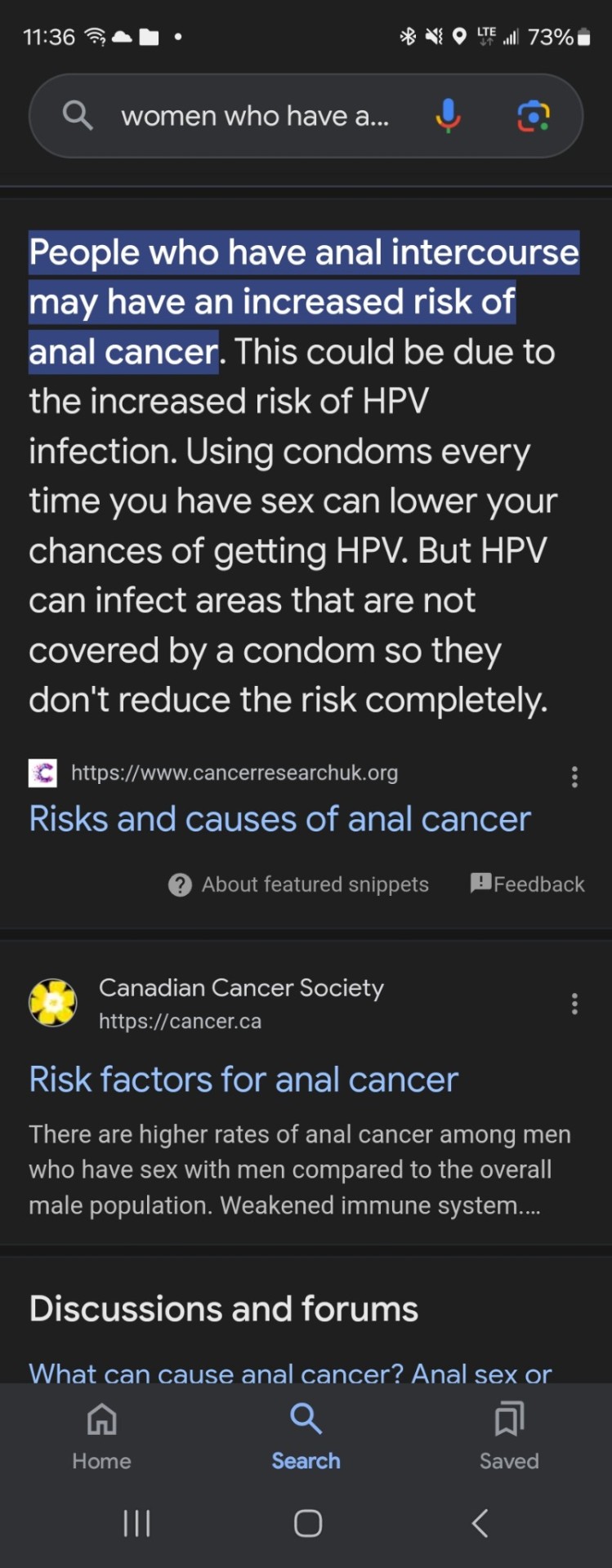
0 notes
Text
The Ultimate Guide to Trauma Management: Best Practices for Emergency Situations"
In the world of emergency medicine, managing trauma effectively is crucial for saving lives and improving outcomes. Trauma, whether from accidents, violence, or natural disasters, requires a swift and well-coordinated response. This comprehensive guide delves into the multifaceted approach to trauma management, emphasizing the importance of rapid assessment, precise intervention, and comprehensive care.
Initial Assessment and Triage: The first step in trauma management is the initial assessment and triage. This involves quickly evaluating the patient's condition to determine the severity of injuries and prioritizing treatment based on urgency. The primary survey follows the ABCDE approach:
Airway: Ensure the airway is clear and manage any obstructions.
Breathing: Assess and support breathing.
Circulation: Control bleeding and maintain adequate circulation.
Disability: Evaluate neurological status.
Exposure: Fully expose the patient to identify all injuries while preventing hypothermia.
Stabilization and Intervention: Once the initial assessment is complete, stabilization and immediate interventions are necessary. This might include securing the airway, providing oxygen, controlling hemorrhage, and immobilizing fractures. Advanced interventions could involve chest tube insertion, emergency surgery, or blood transfusions.
Definitive Care: Definitive care involves addressing the underlying injuries through surgical and medical treatments. This phase requires a multidisciplinary approach, often involving trauma surgeons, orthopedic specialists, neurosurgeons, and other experts. The goal is to repair injuries, prevent complications, and start the rehabilitation process.
Rehabilitation and Recovery: Rehabilitation is a critical component of trauma management, focusing on helping patients regain function and independence. This may include physical therapy, occupational therapy, psychological support, and other interventions tailored to the individual’s needs. Early and comprehensive rehabilitation can significantly improve long-term outcomes.
Psychological Impact and Support: Trauma doesn't just affect the body; it also has profound psychological impacts. Patients may experience post-traumatic stress disorder (PTSD), anxiety, depression, and other mental health issues. Providing psychological support and counseling is essential for holistic recovery.
Conclusion:
Effective trauma management is a complex and dynamic process that requires a well-coordinated effort from a diverse team of healthcare professionals. By following structured protocols, ensuring rapid response, and addressing both physical and psychological needs, we can improve survival rates and quality of life for trauma patients. This guide provides a roadmap for navigating the intricate landscape of trauma care, highlighting best practices and innovative approaches in the field.
Important Information: Conference Name: 15th American Healthcare, Hospital Management, Nursing, And Patient Safety Summit Patient Safety Conference Short Name: #15AHNPSUCG2025 Dates: May 14-16,2025 Venue|: San Francisco, United States & Virtual Email: [email protected] Visit: https://health.universeconferences.com/ Call for Papers: https://health.universeconferences.com/call-for-paper/Register here: https://health.universeconferences.com/registration/Call/WhatsApp Us: +442033222718
#TraumaManagement#EmergencyResponse#MedicalCare#FirstAid#TraumaCare#HealthcareProfessionals#EmergencyMedicine#PatientCare#TraumaRecovery#MedicalGuide#HealthTips#SurvivalSkills#InjuryPrevention#Rehabilitation#MentalHealthSupport#LifeSavingSkills#MedicalEmergency#HealthcareInnovation#TraumaAssessment#MedicalIntervention
0 notes
Text

━ his father was loud laughter and notebook after notebook of solid writing and was also the smell of vodka and staying up too late for his own good. 'dad, dad, please go to bed,' and his father would laugh and say 'not yet.'
Character name: Shane Hughes
Age: Forty-one
Gender identification & pronouns: Cis-male & he/him
Sexuality: Heterosexual
Residential area: Masonboro
Hometown and length of time in Wilmington: San Francisco and moved to Wilmington 7 years ago
Occupation: Florist and Owner of Branches + Vine
Positive traits: protective, loyal, charming
Negative traits: single-minded, stubborn, relentless
Faceclaim: Jesse Williams
TLDR ; Shane Hughes is the ultimate protector. After losing his mother to his father's abuse, his grandmother to old age, and younger brother to a kidnapping overseas, one might wonder if Shane has experienced far too much trauma for one person. But with therapy and gardening, the florist is finally learning how to navigate the minefield of triggers that life seems to throw at him.
PINTEREST / CONNECTIONS
TW: verbal and physical abuse, parental abuse, parental death, grandparent death, mention of kidnapping, sibling death
From the outside looking in, Dominic and Tracy Hughes looked like the perfect couple with the perfect life. But behind closed doors, Dominic was an incredibly verbally and physically abusive husband. The abuse was so bad, that Tracy isolated herself from her family who had begun to ask questions. When the couple had kids, Tracy hoped that maybe it would calm Dominic down. Instead, the abuse just continued. At first, just verbally, but the pain from being verbally abused by your father wasn’t any less just because it wasn’t physical.
As the oldest child, Shane did his best to try to protect his little brother, Josiah, from it, but their father was a perfectionist who was impossible to please. Nothing the boys could do was ever good enough for Dominic. Anything they did well at, whether at school or in sports, Dominic hounded on them to practice and get better at, but no matter how much they succeeded, no matter how many awards they won, it was never good enough
One summer, when Shane was 14, he came home from summer camp and found his father and mother arguing near the top of their staircase. Shane watched as his father shoved his mother and pushed her down the stairs. Tracy broke her neck and died on impact. Dominic ordered Shane not to tell a soul or else he would leave with Shane’s younger brother. Shane felt like he had to protect Josiah and lied to the cops for his father. It is a decision that haunts him to this day.
Shane was so traumatized by his father and his childhood experience, that he swore he would never, ever be a father. Not if there was a chance he could end up like his own father. He feared for his future children’s lives and for his future spouse’s
Shane grew to become a very determined, very protective, young man. He refused to go out of state for college because he refused to leave Josiah at home alone with their father. So he went to Stanford, living at home throughout his studies, until his younger brother was old enough to go to college as well. During his MBA at Stanford, he met and quickly fell in love with Samira Iyer. He was a TA for several of her classes and the two quickly struck up a close friendship.
Several years after they had both graduated, they finally fell into a relationship and the years they spent together were truly some of the happiest years of Shane’s life up until that point. They even got engaged, preparing to spend the rest of their lives together, until suddenly two pink strips on a pregnancy test sent Shane’s life into a spiral.
The positive pregnancy test triggered a lot of unresolved trauma for Shane, and admittedly, he didn’t respond positively, instead immediately going into panic mode. He had assumed that because they never talked about kids, they were on the same page about not wanting them. Evidently, he was wrong. Samira wanted to keep the bably and Shane, in a desperate attempt at maintaining his own sanity, knew he couldn’t be a father. He begged Samira to give the baby up for adoption, but Samira knew she wanted more for their baby and herself, so with the decision to keep the baby, she ended their relationship
Shane went into a very intense downward spiral. He quit his job, which he been in line for a promotion for, broke his lease, and very quickly left San Francisco. Having put together - through bits and pieces his mother told him - that her family lived in a town called Wilmington, Shane packed up and moved there, only telling his brother, who had become a photojournalist and camera man for a international news agency, where he was going.
In Wilmington, Shane finally settled himself. He developed a relationship with his maternal grandmother, who loved gardening and taught him everything she knew about plants and flowers. He also finally began to go to therapy, to deal with all of the trauma he clearly still held onto from his childhood. When his grandmother passed away, a year after he moved to Wilmington, she left her family’s fortune to him, and it was just enough for him to open his own floral shop, where he could put the skills he had learned from her to good use.
Five years ago, Shane got the worst news of his life. Josiah, who he loved more than anyone else in the world, had been kidnapped while working on a story overseas, along with the rest of his crew, and Josiah had been killed. Shane was devastated. He traveled back to San Francisco for Josiah’s funeral and saw his father for the first time in years. The two nearly came to blows when Dominic dared to insinuate that it was somehow Shane’s fault Josiah had been killed. But truth be told, the protector in Shane can’t help but wonder if his father is right.
He returned to Wilmington, having taken several steps backwards on his healing journey and has been continuing to go to therapy to get to a better place ever since. His love for gardening has turned into a bit of therapy on it’s own and there’s nothing better for him when he feels triggered than to go spend some time in his garden.
#wnc.intro#about#tw verbal abuse#tw physical abuse#tw parental abuse#tw parental death#tw grandparent death#tw kidnapping#tw sibling death
0 notes